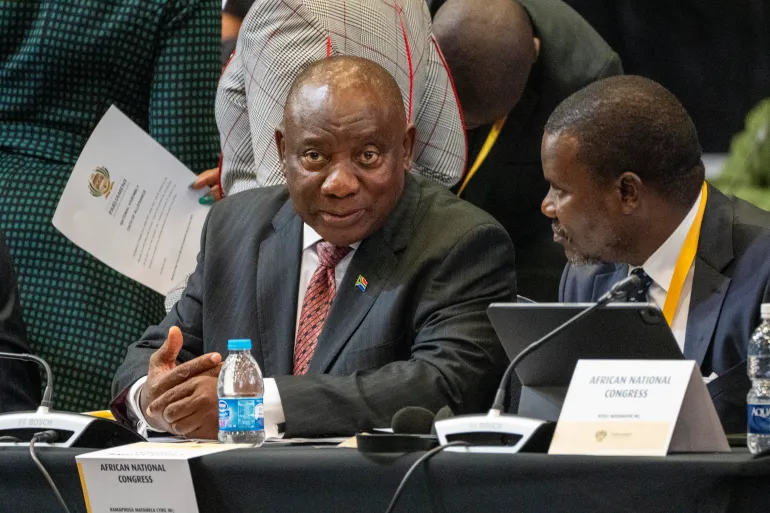President Cyril Ramaphosa has reaffirmed that South Africa’s 10-party government of national unity is the best option for the country, warning that the consequences of its failure would be severe.
The coalition, formed after the African National Congress (ANC) lost its parliamentary majority in the May elections, unites a diverse range of centrist and conservative parties, including some of the ANC’s harshest critics.
Tensions within the alliance were highlighted by a recent dispute over an education bill, which Ramaphosa signed into law despite strong opposition from the Democratic Alliance (DA), the second-largest party in the coalition.
“Prior to the elections, people were concerned about where the country was going to, investors were holding back, and our economic growth trajectory seems to be at a stall,” Ramaphosa told reporters.
He said the formation of the unity government had restored confidence and presented new opportunities for development.
Ramaphosa added that the parties within the government had reaffirmed their commitment to the coalition, even if there were disagreements on some matters.
The ANC had ruled South Africa with a majority since the first democratic elections in 1994 but managed only 40 percent of the vote in the May election — its worst result ever, reflecting public frustration over corruption, unemployment, crime, and inequality.
While acknowledging mistakes over the past 30 years, Ramaphosa insisted there had been progress in improving South Africans’ lives. He also reaffirmed his focus on economic growth, job creation, and the empowerment of black South Africans in his government.
South Africa remains one of the most unequal nations globally, with an unemployment rate exceeding 33 percent.

